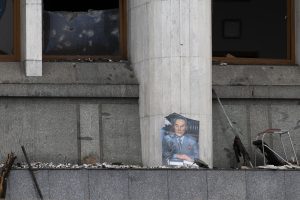Even after stepping down from the presidency in 2019, Nursultan Nazarbayev remained Kazakhstan’s “First President” and elbasy, leader of the nation. Four years later, much has changed and now Astana is cutting the budget for the first president’s office.
According to an RFE/RL report this week, Kazakh Finance Minister Erulan Zhamaubaev said that the Office of the First President would effectively cease to exist within the next 45 days.
The closure is the result of a reallocation of funds in the budget away from the office, itself tied to the invalidation of the law “On the First President” that was a result of last year’s constitutional referendum. (Incidentally, Zhamaubaev’s comments on June 7 come almost exactly a year after the referendum, which dropped references to “elbasy” from the constitution.)
In March 2023, Vice Minister of Finance Dauren Temirbekov told reporters that funding for the first president’s office would be cut by 130 million tenge (more than $291,000). Previously, 1-1.5 billion tenge ($2.2-3.3 million) had been allocated to the office.
Zhamaubaev’s comments this week noted that the office would be “restructured,” with some staff shifted to other organizations and others “reduced.”
“I think that in the near future… the office as such will no longer exist,” he said.
This looming closure fits into the overall process of “de-Nazarbayevification” that has occurred in Kazakhstan since the January 2022 events.
Earlier this week, deputies in the lower house of Kazakhstan’s parliament, the Mazhilis, said they were working on amendments that would exclude from the criminal code an article that criminalized insulting the first president (Article 373) with up to five years in prison. The effort was characterized by deputies as technical in nature, given the constitutional referendum last year.
“The status of Elbasy no longer exists, so criminal liability is no longer needed and will not be applied,” Snezhanna Imashev, a deputy in the parliament, said.
In 2020, a Karaganda man was the first to be convicted under Article 373 for insulting Nazarbayev in a video posted to social media. The man was criticized for using obscene language in his harsh commentary about the former president, but as Eurasianet reported, the bulk of his comments focused on “the dismal living conditions of people in the regions.” He was ultimately sentenced to three years of parole-like “restricted freedom,” 100 hours of “compulsory labor,” and a 41,670 tenge fine.
































